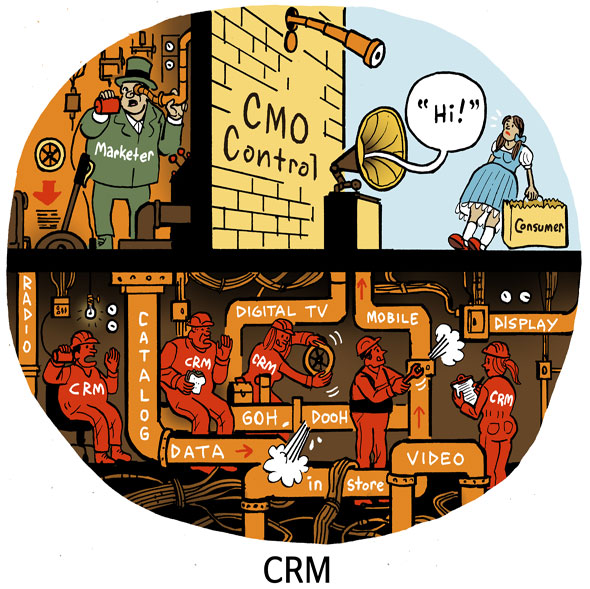Criteo is now a default data partner for all of Dentsu’s retail media buys.
On Friday, Dentsu and Criteo announced a strategic partnership to consolidate their respective retail audience data within Dentsu Connect, the agency holding company’s data and identity product.
Dentsu has been on a tear.
Criteo is the second strategic ad tech integration the holdco announced this week, following a similar partnership with MiQ to use its new AI-powered ad platform.
The ad industry is entering “the algorithmic era,” Sarah Holcomb, Dentsu’s SVP, global retail partnerships, told AdExchanger. And not all vendors or point solutions are built for the change.
“We need to offer the best-in-breed technology for our clients to leverage in all markets,” Holcomb said. “And to do that, it requires choosing.”
How it works
Dentsu and Criteo have already worked together for years and have a great deal of customer overlap.
What’s new, Holcomb said, is that Criteo’s commerce audience data is now natively part of Dentsu Connect. By combining data sets, she said, the agency can see information, such as product inventory, pricing and SKU-level performance across retailers, which is Criteo’s domain.
Also, importantly, this will be the first time Criteo’s data can be used to support Dentsu’s campaign planning and targeting on behalf of brands that are not Criteo’s clients.
Holcomb declined to clarify the exact commercial arrangement between Dentsu and Criteo or how Criteo will be paid if and when its data is used or white-labeled as part of a campaign.
Why Criteo?
There are a couple of important reasons why Dentsu has decided to default to a strategic partner like Criteo.
For one, Holcomb said, “interoperability is a key tenet for how we’re going to market in the algorithmic era.”
Criteo is an open third-party vendor that is widely integrated across the ecosystem. It also doesn’t own media.
The same is true of Dentsu’s other recent partner, MiQ. Dentsu is selecting a few preferred vendor pipelines, but also wants those pipes to be reliably open, which may not be the case with a walled garden platform. Amazon and Google, for example, both have their own retail media ad tech that rival Criteo.
Another important factor is that Criteo “plays across the entire [commerce] ecosystem,” Holcomb said.
Dentsu didn’t want a point solution to support one part of the supply chain. It selected Criteo because the ad tech company has contractual relationships with retailers on one side and brands on the other, just like Dentsu is building with its retail media practice.
The third reason, she added, is that Criteo is a large vendor that spends hundreds of millions of dollars on its own R&D but is also independent and eager to collaborate on technical problems. Huge platforms aren’t always so willing to work together to fix issues.
“When we bring ideas to Criteo, they jump on them and want to work together to figure them out,” Holcomb said. “It’s great to work with a partner that’s willing to evolve with us.”
Oh, and one more reason: It probably helps that Criteo’s new CEO Michael Komasinski, who started in February, just so happens to be the former CEO of the Americas at Dentsu, where he led all data projects globally.















